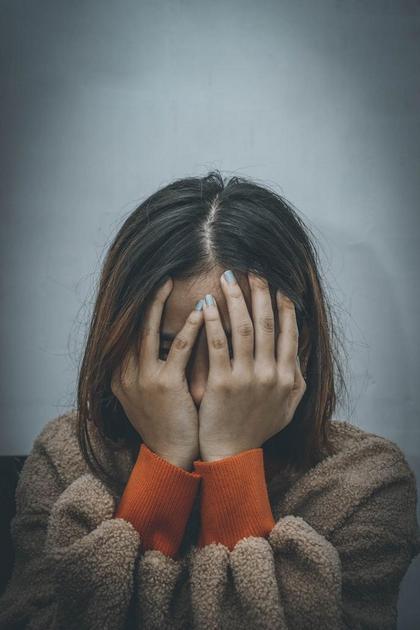Chronic Anxiety in Women: Uncovering Causes and Natural Solutions
Many women silently battle chronic anxiety, a condition that often goes misunderstood. The interplay of hormones, stress, and daily challenges can leave us feeling overwhelmed and fatigued. Understanding the causes of anxiety is crucial, as is exploring natural solutions that can help restore peace.
Understanding Chronic Anxiety: The Silent Struggle
Chronic anxiety is a heavy weight that many women carry, often in silence. It can feel like a persistent shadow, following you through daily tasks, robbing you of joy, and clouding your mind with worry. For many women, especially those over 30, anxiety becomes a familiar companion, one that can disrupt both personal and professional life.
What does chronic anxiety look like? It manifests in various ways—racing thoughts, a constant feeling of nervousness, and even physical symptoms like a racing heart or tightness in the chest. These experiences can lead to searching for answers, yet many feel isolated, believing that they are alone in their struggles.
In this journey of understanding anxiety, it’s crucial to recognize that it’s not a sign of weakness; rather, it’s an indication of life’s pressures, hormonal changes, and the unique challenges that come with being a woman in today’s fast-paced world.
The Role of Hormones in Women’s Anxiety
The hormonal fluctuations that women experience throughout their lives, including during menstruation, pregnancy, and menopause, significantly impact mental well-being. Hormones play a critical role in mood regulation, which is why many women notice increased anxiety during these transitions.
Estrogen and progesterone can influence neurotransmitters, like serotonin and dopamine, which are important for mood balance. When hormonal levels dip or fluctuate, it can lead to increased feelings of anxiety and stress.
For instance, during the days leading up to a menstrual cycle, many women report feeling heightened anxiety, irritability, and fatigue. Understanding these hormonal patterns can empower women to manage their anxiety proactively.
Common Causes of Anxiety in Women Over 30
As women reach their 30s and beyond, several factors can contribute to increased anxiety levels. Some common causes include:
- Work-related stress: Balancing career ambitions with personal life can lead to overwhelming feelings of inadequacy.
- Changes in relationships: As personal connections grow and evolve, fears about attachment and support can become more prevalent.
- Motherhood: The pressures of parenting can create feelings of anxiety regarding the well-being and future of children.
- Health concerns: Anxiety can arise from real health issues or simply the fear of them, common as women age.
- Societal pressures: The expectation to ‘have it all’ can create an environment filled with anxiety and stress.
Recognizing these causes can help women to contextualize their feelings and work towards effective solutions.
Emotional Effects: How Anxiety Impacts Daily Life
Anxiety isn’t just a mental health issue; it has profound effects on nearly every aspect of daily life. Women might find that it influences their relationships, work performance, and overall quality of life.
The emotional toll can lead to:
- Difficulty concentrating: Anxiety can cloud the mind, making it hard to focus on tasks at work or home.
- Social withdrawal: Feelings of anxiety often make social interactions daunting, leading to isolation.
- Physical symptoms: Anxiety can manifest as fatigue, insomnia, headaches, and stomach issues, which compounds the emotional struggle.
Acknowledging these impacts is vital to understanding that chronic anxiety is not merely a state of mind; it’s a complex interaction of emotions and physiological effects that deserve attention and care.
Natural Solutions to Combat Chronic Anxiety
There is hope and healing through natural methods that can help alleviate chronic anxiety. Here are some powerful solutions:
- Breathing exercises: Simple techniques, such as deep belly breathing, can help calm the nervous system.
- Regular exercise: Physical activity releases endorphins, which can elevate mood and reduce stress.
- Herbal remedies: Some women find relief with natural supplements like ashwagandha, chamomile, or lavender.
- Aromatherapy: Essential oils, such as lavender and bergamot, have been shown to reduce anxiety symptoms.
Embracing these practices can offer women a sense of control over their anxiety while promoting inner peace.
Mindfulness and Its Benefits for Reducing Anxiety
Mindfulness is about being present in the moment, and it’s a powerful tool in combatting anxiety. Engaging in mindfulness practices, like meditation or yoga, can help soothe an anxious mind.
Benefits of mindfulness include:
- Reduced rumination: Mindfulness encourages you to redirect your thoughts, breaking the cycle of overthinking.
- Improved mood: Regular mindfulness practice is linked to higher levels of well-being and emotional resilience.
- Greater self-awareness: It helps in recognizing anxiety triggers, allowing for proactive management.
By making small increments into mindfulness practices, you can foster a stronger, more resilient mindset.
Nutrition and Hormonal Balance: What You Should Know
Your diet plays a crucial role in mental health and anxiety management. Understanding the connection between nutrition and hormonal balance can lead to effective anxiety reduction strategies.
Key nutrition tips include:
- Omega-3 fatty acids: These healthy fats are known to support brain health and reduce anxiety. Consider incorporating salmon, flaxseeds, and walnuts into your diet.
- B vitamin-rich foods: Foods like spinach, eggs, and whole grains support energy levels and mood stability.
- Hydration: Staying hydrated can improve concentration and mood, two vital components when managing anxiety.
Simple dietary tweaks can contribute significantly to alleviating anxiety symptoms.
Empower Yourself: Steps to Manage Chronic Anxiety
Empowerment comes from taking steps towards self-care and understanding your anxiety. Here are actionable steps to consider:
- Keep a journal: Writing about your feelings can help clarify emotions and reduce anxiety.
- Establish a routine: Creating a structured daily routine can boost feelings of stability and calm.
- Limit caffeine and alcohol: Both can increase anxiety levels, so moderating their intake may help.
By empowering yourself with knowledge and practices, women can take charge of their mental health journey.
Connecting with Support: Finding Your Community
Finding a support network is vital for anyone dealing with chronic anxiety. Talking to others who understand can lessen feelings of isolation.
– Consider joining a local or online support group dedicated to women’s mental health.
– Reach out to friends and family; sharing your experiences can cultivate deeper relationships.
– Seek professional help if needed; therapists can provide strategies tailored to your specific needs.
Building connections can lead to shared experiences and create a safety net during challenging times.
A Journey to Peace: Simple Steps You Can Take
The journey towards reducing chronic anxiety is within your reach. Here are some simple yet effective steps to start today:
- Start small: Incorporate one new practice at a time into your routine, whether it’s meditation or walking outdoors.
- Celebrate progress: Acknowledge even the smallest victories in managing anxiety.
- Remind yourself of your strength: Recognize that you have overcome challenges before and can do so again.
It’s entirely possible for women to navigate through anxiety and find peace, just as many others have. You have the ability to find solutions that resonate with you and lead you towards a brighter, more balanced life.
Remember, you’re not alone in this journey. There’s a supportive community waiting for you, and incredible solutions to help you reclaim your joy and serenity.













